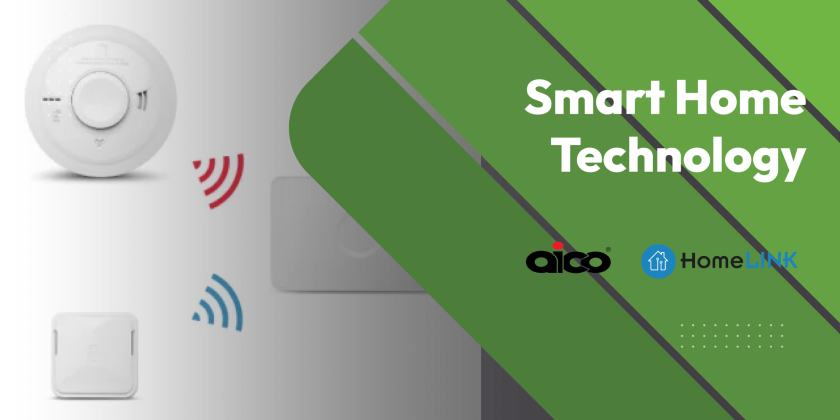As energy efficiency becomes a priority for many households, understanding the eligibility for boiler upgrade schemes is crucial for homeowners looking to improve their heating systems. With the government’s push towards reducing carbon emissions and encouraging sustainable living, these schemes offer financial incentives to upgrade to more efficient boilers. However, navigating the criteria and requirements can be a daunting task. This guide will provide a clear and practical explanation of the eligibility criteria for these schemes, helping you determine whether you can take advantage of the benefits offered. From income thresholds to property type, we will cover all the essential information you need to know to make an informed decision about upgrading your boiler.
Introduction to Boiler Upgrade Schemes
Importance of Boiler Upgrades
Upgrading your boiler is an essential step towards improving energy efficiency and reducing your household’s carbon footprint. Older boilers often operate at lower efficiency levels, which can lead to higher energy bills and increased emissions. By investing in a more efficient boiler, homeowners can significantly cut down on energy consumption, leading to cost savings in the long run. Additionally, modern boilers offer improved reliability and safety features, reducing the likelihood of breakdowns and potentially hazardous malfunctions. With the government’s focus on reducing carbon emissions, upgrading your boiler not only benefits your wallet but also contributes to broader environmental goals. Furthermore, enhanced heating systems can improve overall home comfort, providing consistent warmth and better control over heating schedules. Understanding the importance of these upgrades is crucial for making informed decisions regarding your home’s heating system.
Overview of Available Schemes
In the UK, several boiler upgrade schemes are available to assist homeowners in transitioning to more energy-efficient heating systems. These schemes are designed to alleviate the financial burden of upgrading by offering grants or subsidies. The government’s Boiler Upgrade Scheme is a prominent initiative that provides financial support for replacing old boilers with low-carbon alternatives like heat pumps. Additionally, the Energy Company Obligation (ECO) scheme compels larger energy suppliers to help improve the energy efficiency of eligible homes, often covering the cost of new boilers. Some local councils also offer targeted programmes, particularly for vulnerable households, to ensure they have access to efficient heating. Each scheme has its own set of eligibility criteria and application processes, making it important for homeowners to research and understand the specific requirements. By taking advantage of these schemes, homeowners can make significant strides towards sustainability while benefiting from reduced energy costs.
Eligibility Criteria Explained
Assessing Your Current System
Before diving into a boiler upgrade, it’s crucial to assess the condition of your current heating system. Begin by examining the age and efficiency of your existing boiler. Older models, particularly those over 10-15 years old, are typically less efficient and more costly to run. If your boiler frequently requires repairs or maintenance, it may indicate that an upgrade is necessary. Understanding the type of boiler you have—whether it’s a combi, system, or conventional model—will also influence your options for replacement. Check the boiler’s energy efficiency rating, as newer models generally boast higher ratings and better performance. Additionally, consider the overall heating needs of your home, including the size of your property and your typical energy usage patterns. This assessment will help you determine whether you’re eligible for a boiler upgrade scheme and ensure that any new installation is well-suited to your household’s specific requirements.
Financial Considerations
Understanding the financial aspects is a key component of determining eligibility for a boiler upgrade scheme. One of the first steps is to evaluate your household income, as many schemes have specific income thresholds to qualify for assistance. Some programmes are designed to support low-income families, offering full or partial funding for the installation of energy-efficient boilers. Additionally, consider the upfront costs associated with a boiler upgrade. Even with available grants, there may be additional expenses that need to be factored into your budget, such as installation fees or necessary home modifications. It’s also important to weigh the long-term financial benefits, such as reduced energy bills and potential increases in property value. By carefully assessing your financial situation and understanding the funding options available, you can make an informed decision about whether pursuing a boiler upgrade is feasible and beneficial for your household.
Steps to Determine Eligibility
Gathering Required Documentation
Collecting the necessary documentation is a crucial step in determining your eligibility for a boiler upgrade scheme. Start by gathering proof of income, such as payslips or tax returns, which may be required to verify your financial situation. If the scheme is specifically aimed at low-income households, detailed income documentation will likely be essential. Additionally, you’ll need to provide evidence of home ownership or residency, which could include mortgage statements, lease agreements, or property deeds. Some schemes may require documentation related to your current boiler or heating system, like maintenance records or energy bills, to assess the existing efficiency and usage levels. Having these documents organised and readily available can streamline the application process and reduce delays. By preparing this documentation in advance, you’ll be better positioned to determine your eligibility and successfully apply for any available boiler upgrade schemes.
Understanding Energy Efficiency Ratings
Comprehending energy efficiency ratings is vital when determining eligibility for boiler upgrade schemes. Energy efficiency ratings measure how effectively a boiler converts fuel into heat. In the UK, boilers are rated using the Seasonal Efficiency of Domestic Boilers in the UK (SEDBUK) system, which categorises boilers from A (most efficient) to G (least efficient). An A-rated boiler operates at an efficiency of 90% or higher, whereas a G-rated boiler functions below 70% efficiency. These ratings provide a clear indication of potential energy savings and environmental impact. Knowing your current boiler’s rating can help you assess the benefits of upgrading to a more efficient model. Moreover, many schemes prioritise replacing less efficient boilers, making this information essential for eligibility. Understanding these ratings not only aids in the application process but also helps you make informed decisions about the most suitable and efficient heating options for your home.
Navigating the Application Process
Key Information for Applications
When applying for a boiler upgrade scheme, being well-prepared with key information is essential. Start by clearly understanding the specific requirements of the scheme you are applying to, as each might have unique criteria. Ensure you have all the necessary documentation ready, such as proof of income, home ownership, and any previous energy bills that reflect your current boiler’s efficiency. You should also be prepared to provide personal information, like identity verification documents, which may be required to process your application. Additionally, having a detailed understanding of your current boiler’s make, model, and efficiency rating can be crucial, as this information often impacts eligibility. Be sure to check deadlines for submission and any supporting documents that may need to accompany your application. By gathering and organising this information in advance, you can facilitate a smoother application process and increase your chances of successfully securing a boiler upgrade under the scheme.
Common Pitfalls to Avoid
When navigating the boiler upgrade application process, several common pitfalls can hinder your success. Firstly, failing to thoroughly understand the specific eligibility criteria of the scheme can lead to wasted time and effort. Carefully review all requirements before applying. Another frequent mistake is neglecting to submit complete documentation. Missing or incorrect documents can delay or even disqualify your application. Ensure all paperwork, such as proof of income and home ownership, is accurate and up-to-date. Additionally, many applicants overlook scheme deadlines, resulting in missed opportunities. Mark important dates and plan to submit your application well in advance. Also, some applicants underestimate the significance of the boiler’s energy efficiency rating. Providing inaccurate information regarding your current system can affect your eligibility. Lastly, avoid assuming automatic eligibility based on income or property type without consulting the scheme’s guidelines. By being mindful of these pitfalls, you can improve your chances of a successful application.
Benefits of Upgrading Your Boiler
Long-term Cost Savings
Upgrading your boiler offers considerable long-term cost savings that can positively impact your household budget. Modern boilers are designed to operate with higher efficiency, meaning they convert more fuel into usable heat. This efficiency translates into lower energy bills, as less fuel is required to maintain a comfortable home temperature. Over time, the savings on energy costs can offset the initial investment of a new boiler installation. Additionally, newer boilers are often more reliable, reducing the frequency and cost of repairs. They also tend to have longer lifespans, further enhancing their value over time. By using less energy, you not only save money but also reduce your home’s carbon footprint, contributing to environmental sustainability. Moreover, some energy-efficient boilers may qualify for tax incentives or rebates, providing additional financial benefits. Considering these factors, the decision to upgrade your boiler can be a financially savvy choice in the long term.
Environmental Impact and Efficiency
Upgrading your boiler significantly reduces your home’s environmental impact by improving energy efficiency. Modern boilers are engineered to use fuel more efficiently, which results in lower carbon emissions compared to older models. By consuming less fuel to produce the same amount of heat, these boilers contribute to a reduction in greenhouse gases, aligning with global efforts to combat climate change. Moreover, many new boilers incorporate advanced technology, such as condensing capabilities, which capture and reuse heat that would otherwise be wasted. This not only boosts efficiency but also decreases overall energy consumption. In addition to lowering emissions, the shift to a more efficient boiler helps conserve non-renewable energy resources, promoting sustainable living practices. Homeowners who upgrade to a high-efficiency boiler also set a positive example, encouraging community-wide adoption of eco-friendly solutions. Ultimately, the decision to upgrade your boiler plays a vital role in enhancing environmental sustainability while improving energy use efficiency.


